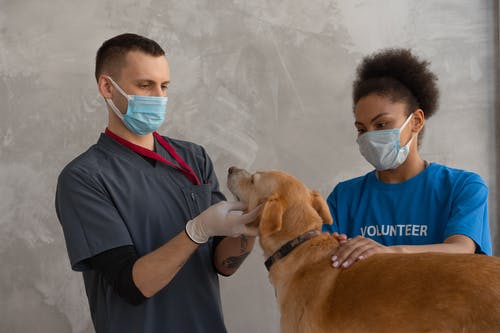Understanding the Importance of Emergency Veterinary Care
Pets become an integral part of our lives, making it crucial for pet owners to proactively monitor their pet’s health and well-being. Recognizing the signs of illness or injury and seeking veterinary care promptly can make all the difference. In this article, we’ll delve into the importance of emergency veterinary services, signs that your pet might need immediate care, and the role of pet first aid.
Know When to Seek Emergency Vet Care
If your pet experiences an obvious trauma or a life-threatening health issue, seek help from an emergency pet hospital right away. Situations that require immediate attention include poisoning, excessive bleeding, seizures, or apparent paralysis. To avoid potential life-threatening complications, it is better to be safe than sorry. Don’t wait to seek help if you think your pet is experiencing an emergency.
Geriatric Care for Senior Pets
As pets age, they often require additional care and attention. For senior pets, visiting geriatric veterinary clinics can help owners ensure their pets are as healthy and comfortable as possible. These specialized clinics can provide tailored care and comprehensive evaluations to address age-related health issuesand support your pet’s quality of life.
Puppy and Kitten Vet Care
Just like children, puppies and kittens require special care in the early stages of their lives. With regular visits to the vet, pet owners can nurture optimal growth and health in their young pets. The healthcare provided during these crucial developmental stages involves not only vaccinations and physical exams, but also discussions on proper feeding, training, and socialization. Click here to know more about puppy and kitten vet services.
Emergency Veterinary Services: When and How to Seek Help
Emergency veterinary services play an essential role in safeguarding your pet’s well-being. Unexpected accidents or health problems can occur at any time, making 24/7 availability crucial when your pet needs immediate support. Here are some signs and symptoms that indicate an emergency visit to an emergency pet hospital is necessary: – Difficulty breathing or abnormal breathing patterns – Pale gums or weak pulse – Excessive vomiting or diarrhea (more than two to three times in an hour) – Seizures or loss of consciousness – Eye injuries, even if they appear mild
Transporting Your Pet to an Emergency Vet
During an emergency, your pet may be in severe pain, stressed, or even aggressive. Ensuring your safety and your pet’s well-being during transport is essential. To avoid further complications or injuries, consider using carriers for cats and leashes for dogs. Should your pet display aggression, seek professional assistance from your local vet or emergency pet hospital.
Pet First Aid: An Essential Skill for Pet Owners
Learning pet first aid can help pet owners provide immediate care during emergencies. By understanding the basics of first aid, you can potentially prevent your pet’s condition from worsening before professional help arrives. Courses such as the Cat and Dog First Aid Online Training from the Red Cross offer an accessible introduction to first aid skills for pets. Remember, these skills do not replace professional veterinary care. They simply serve as a way to stabilize your pet until a veterinary professional can evaluate their condition.
Preventative Care for Your Pet
Being proactive about your pet’s health can help prevent emergencies. Regular visits to the vet will ensure your pet stays up-to-date on vaccinations and receives appropriate preventative medications. Providing a safe home environment, proper exercise, and balanced nutrition further contributes to your pet’s overall health.
Conclusion
As a pet owner, knowing how to identify and address emergencies can make all the difference in your pet’s health. Remain vigilant and aware of any unusual changes in your pet’s behavior, appearance, or symptoms. Don’t hesitate to seek help from an emergency pet hospital when necessary. Remember that prevention is better than cure: keep your pet’s check-ups, vaccinations, and overall well-being on track to ensure a long, happy life together.








